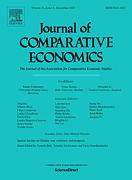Mobile Connectivity: A Vector for Rural Transformations in the WAEMU?
October 15, 2024

Cariolle, J., Elkhateeb, Y., Maurel, M. (2024) « Misinformation technology: Internet use and political misperceptions in Africa », Journal of Comparative Economics (52(2), pp. 400-433.

